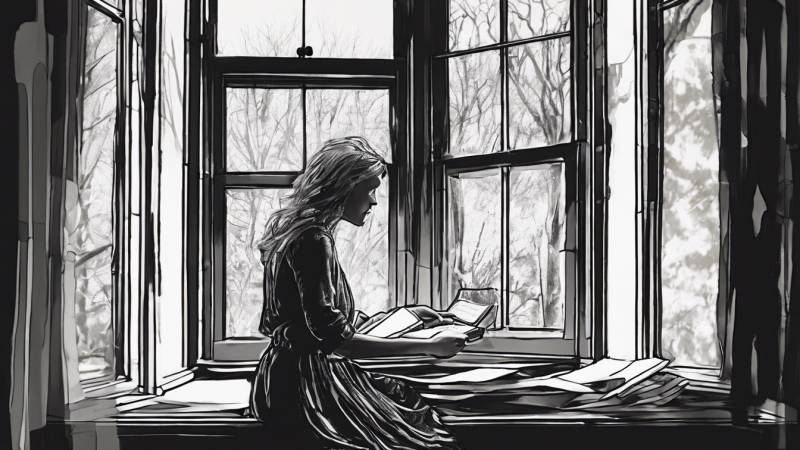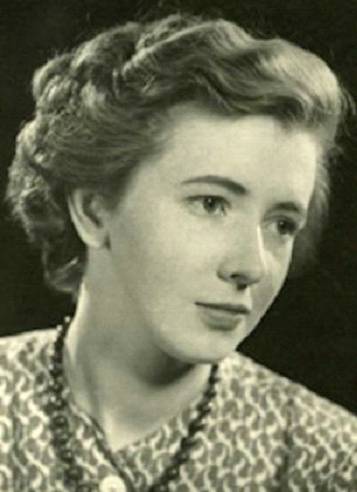
The First World War (1914-1918) and the Second World War (1939-1945) created an atmosphere of fear, chaos, deterioration and rootlessness. These two deadly wars shifted the human condition and perspective. The resulting socio-cultural milieu of the 20th century was reflected by writers in the literature they produced. Modernist poets, in their works, encapsulate and lament the fragmented and distorted post-war society. They experimented with the form, language and subject matter of poetry. The technique of a stream of consciousness, free verse, use of allusions, symbols and social and political commentary became a feature of Modern poetry.
However, towards the middle of the twentieth century (1950's-1960's), a group of poets emerged in reaction to the form and language of Modern poetry. This group was known as Movement poets, and their poetry became known as Movement poetry. JD Scott, the editor of the literary magazine The Spectator, first coined the term 'Movement' in 1954. The Movement poets preferred writing poetry in traditional metrics, form, and syntax. Their poetry targeted the common people, and its style was clear and colloquial. This was a reaction against the free verse style of modern poetry. Movement poets also rejected figurative language, allusions, and references to ancient mythologies and philosophies. The Movement poets believed, "Poetry should be the poetry of everyman, not just of the intellectual elite. Poetry should please, not mystify the reader, and put him in an amaze," (Al Ubaydi). This group of Movement poets included Philip Larkin, Kingsley Amis, Donald Davie, Thom Gunn, DJ Enright, John Wain and Elizabeth Jennings.
Elizabeth Jennings (1926-2001) was born in Boston, Lincolnshire, England. She wrote 26 books of poetry and her poetry was published in various journals and magazines such as the New English Weekly, Oxford Poetry, The Spectator and Poetry Review. Amongst the Movement poets, Jennings is exceptional for two reasons. Firstly, she is the only woman in the Movement group, and secondly, due to the themes of her poetry which set her apart from her fellow and contemporary poets. Unlike other Movement poets, she did not excessively deal with the effects of war on common people. Rather, she was more concerned about human emotions and feelings. Jennings' poetry delves into themes of love, suffering, spirituality and the complexities of human relationships. She is praised for her ability to explore deep and intimate emotions with a delicate and sensitive touch. Her poems often have a contemplative and introspective tone, inviting readers to reflect on their experiences and the universal human condition while using simple and elegant language.
"The poems of Elizabeth Jennings are exemplary in their formal neatness and careful syntactical arrangement," (Neill).
To explore the themes of Jennings' poetry, I shall analyse three of her poems, "Absence," "My Grandmother," and "Friends."

Absence
"Absence" encapsulates the theme of love, suffering, nuances of human emotions and the changing nature of human relationships. The speaker of this poem visits an old place that brings back good memories of the beloved. It is unclear in the poem whether the beloved has died or the romantic relationship between the speaker and the beloved has ended. This poem also signifies that only the person suffering from grief and pain is affected mentally, psychologically and emotionally. The rest of the world does not care, and life goes on for them. This very feeling frustrates the speaker of the poem, and s/he is sad that the outside world is unaffected and unbothered, whereas the speaker's inner world is changed altogether.
"I visited the place where we last met
Nothing was changed,
the gardens were well-tended" (Jennings, lines 1-2).
The speaker of the poem is upset about visiting the same place without the beloved, which shows their changed mental and emotional state. Elizabeth Jennings, through this short and simple poem, describes the tender nature of life and human relationships and calls attention to the harsh reality that time and the nature of relationships never remain the same. She also explores the idea that the absence of dear ones always remains like a void that nothing can fill.
My Grandmother
In the poem, "My Grandmother," Jennings captures the fragility and tenderness of human emotions and feelings. In this poem, the speaker describes his/her childhood memories with his/her grandmother. The speaker describes a memory with the grandmother and says that once s/he refused to go out with the grandmother and, s/he still feels guilty even after the death of the grandmother.
"Though she never said that she was hurt
I still could feel the guilt of that refusal,
guessing how she felt" (Jennings, lines 11-12).
This simple poem elucidates Elizabeth Jennings's emotional sensitivity and sensibility. The speaker's grandmother owned an antique shop.
"She kept an antique shop – or it kept her" (Jennings, line 1).
This suggests that the old lady kept herself busy collecting and decorating antique pieces to avoid loneliness. In most of her poems, she talks about the theme of alienation and isolation because she wrote her poetry in the post-war era and how she suffered from alienation and depression.
Friends
The poem "Friends" describes the speaker's desire to find a good friend. Human beings are always searching for love, care, and acceptance; for this purpose, they build relationships with other human beings. The poem's speaker is searching for a true friend who would be there with the speaker in all odd and favourable circumstances, who does not pay heed to people's opinions about the speaker and with whom the speaker feels his/her true self.
"Who lets me simply be myself
Who's always, always there" (Jennings, lines 15-16).
Through this poem, Jennings sheds light on the importance of genuine and sincere friendships. In the post-war era, when everyone and everything has become disoriented, a good friend may become an anchor, a guiding star, and a safe shelter, and the speaker of the poem is also in search of such a friend.
As these references show, Jennings wrote about common and ordinary things lucidly and simply. "Jennings' poetry is characterised by strong logic, emotional sensitivity, an absence of vagueness, an avoidance of decoration, an eschewing of any mystification. She was always particularly interested in form and in the use of rhyme and mete,r" (Rapple).
From the themes of poems like "Friends," "My Grandmother," and "Absence," it can be established that she paints her poetic landscape with profound sensitivity and emotions. The themes of her poems may be recurring, but they all talk about human life and the tenderness of human relationships. Every person can relate to her poems and experience the feelings and emotions reflected in them, and that is the very characteristic feature and essence of the poetry of the movement poets– simple, ordinary, and relatable to common people.

